Greatest Russian Hockey Players Of All Time

Greatest Russian Hockey Players Of All Time
20. Ilya Kovalchuk
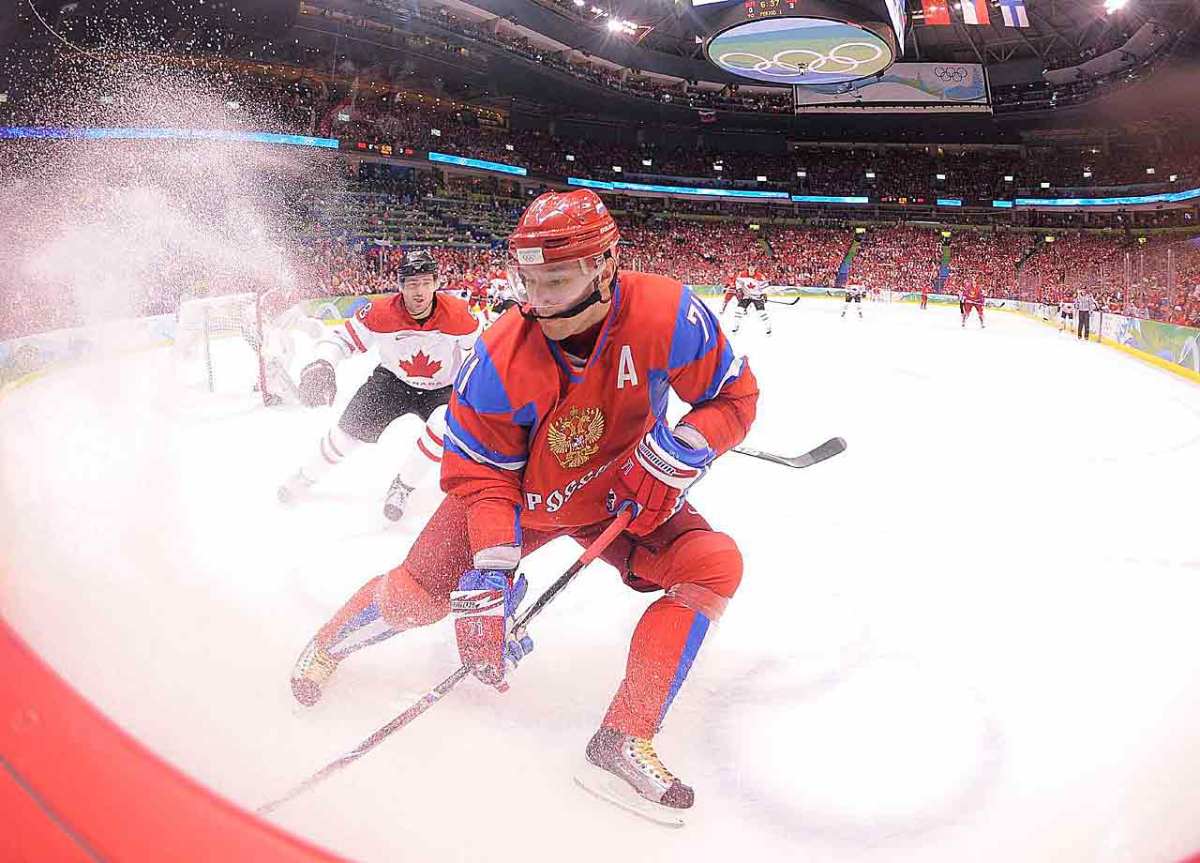
The man who left the Devils adrift last summer with his decision to return to Russia remains one of the world’s great snipers. Kovalchuk scored 417 NHL goals by the time he was 30. But the No. 1 pick in the 2001 entry draft made more news with his contract than he did with his play. The league voided his first long-term deal with New Jersey because of the way it was structured, and Kovalchuk subsequently left $77 million on the table to return to Russia. -- Brian Cazeneuve
19. Alexei Kovalev
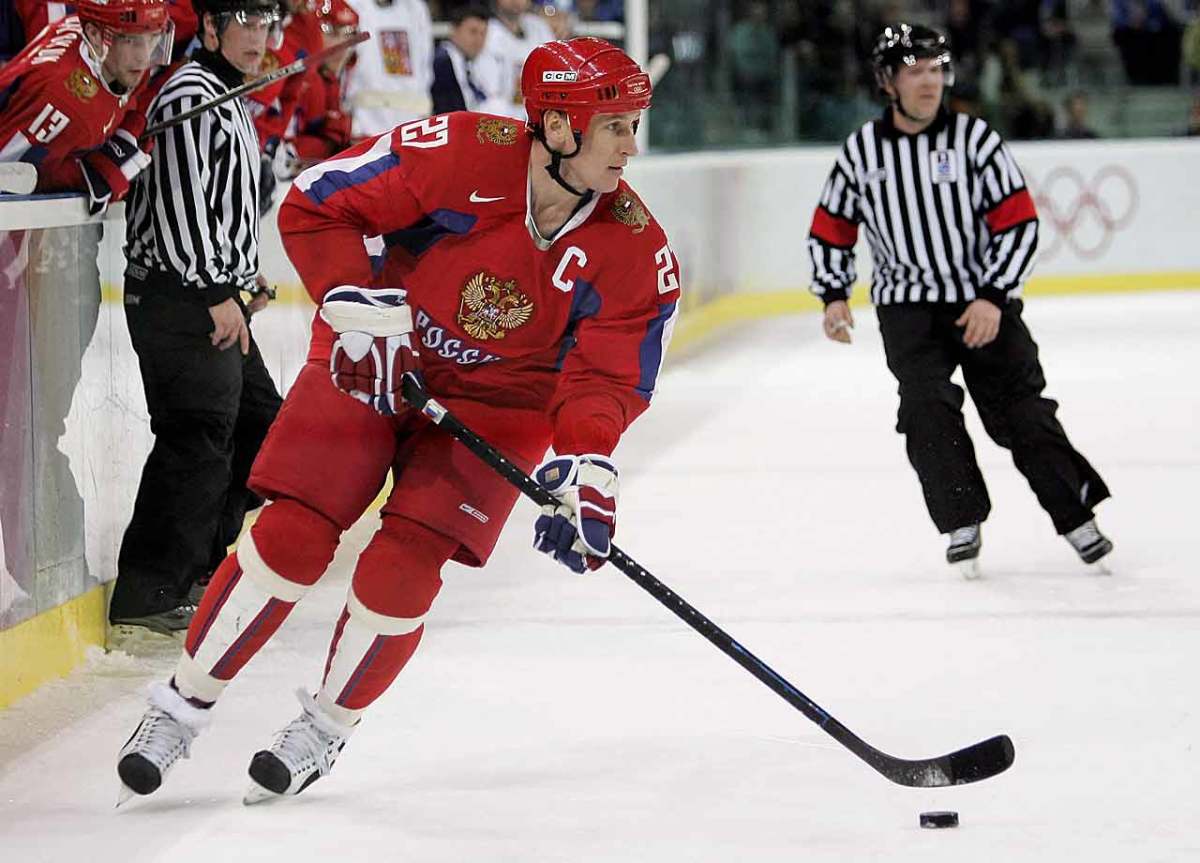
Kovalev was a dazzling and frustrating player, one whose individual skills often left fans and coaches wanting more. He won a Stanley Cup in his second season with the Rangers (who in 1991 had made him the first Russian ever to be drafted in the first round). He finished his NHL career with 430 goals and 1,029 points, as well as 100 points in the post-season. But many critics felt that he never quite had the discipline to reach the greatness that was within his grasp. He was known for overhandling the puck and, sometimes beating the same player two or three times before eventually turning the puck over. -- Brian Cazeneuve
18. Pavel Bure
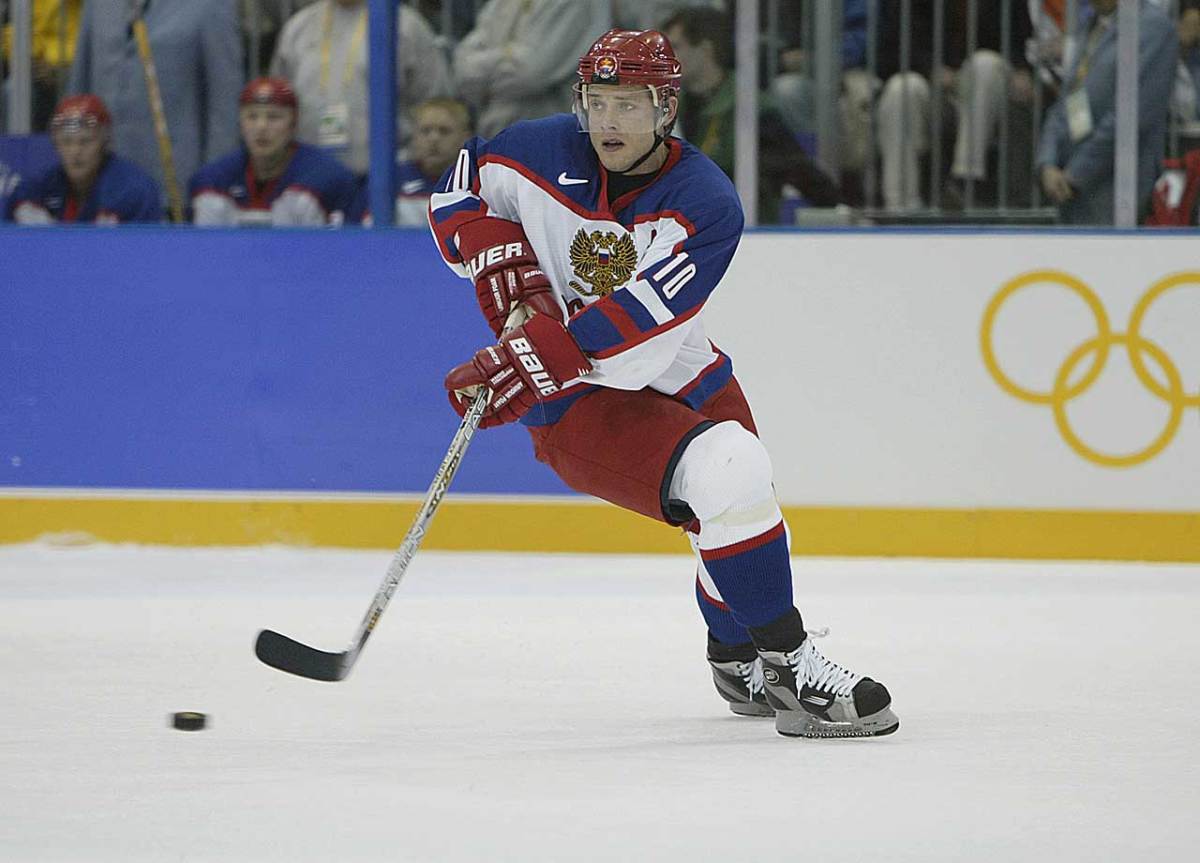
The Russian Rocket was a lightning-quick skater and a lethal sniper who scored 437 goals in 702 NHL games -- his goals-per-game ratio of 0.623 is third best in NHL history. He led the league in goals once with the Canucks and twice with the Panthers, and was named MVP of the NHL All-Star Game in 2000. He was also a much better defensive forward than he got credit for, and his low-to-the-ice skating style made him nearly impossible to knock off the puck. He remains one of the most exciting Russian players ever to take the ice. -- Brian Cazeneuve
17. Alexander Maltsev
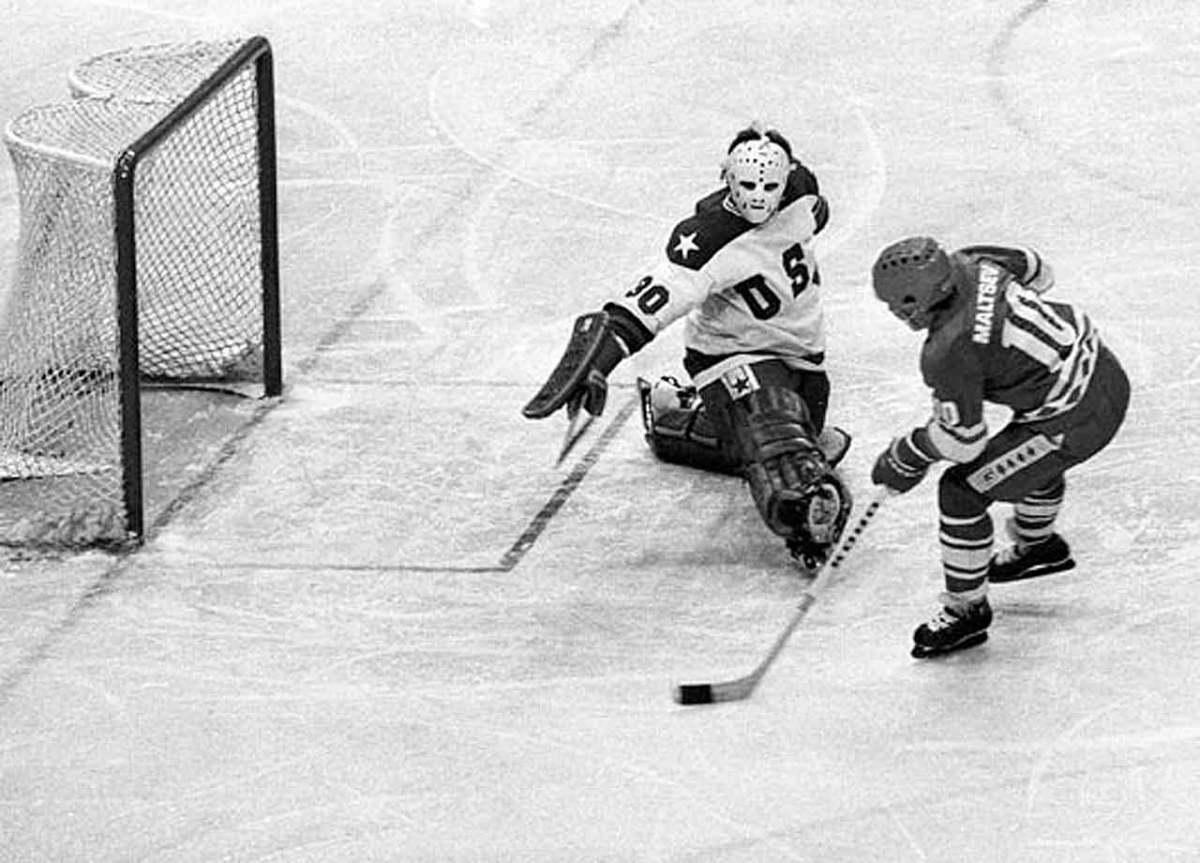
Maltsev scored 213 goals in 321 games with the national team. He was a six-time Soviet League all-star, and spent most of his career playing with Valeri Kharlamov – the two combined for some of the most brilliant highlight-reel goals ever scored. When Maltsev was moving at top speed, there was almost nobody in the world who could keep up with him. At Lake Placid in 1980, he beat U.S. goalie Jim Craig on a second-period breakaway to give the Soviets a 3-2 lead in the Miracle on Ice. Six years after Maltsev retired from Dynamo Moscow, he came back to play pro hockey in Hungary, scoring 20 points in 13 games in 1989. When Alex Ovechkin was growing up, Maltsev was his favorite player. -- Brian Cazeneuve
16. Evgeni Malkin
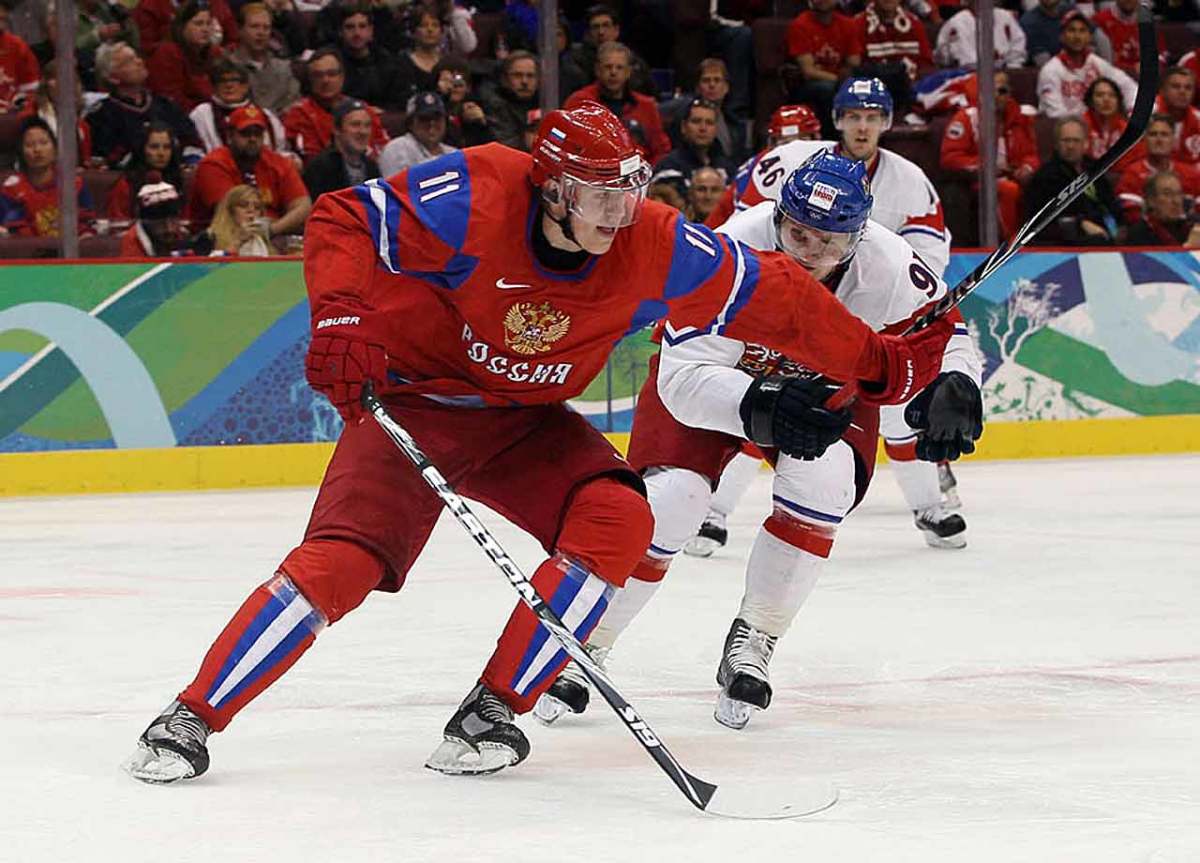
It’s hard to imagine that anybody who plays for a Penguins team that also features Sidney Crosby could be capable of winning a hat trick of elite awards such as the Hart, Art Ross and Conn Smythe trophies. But that is what Malkin has done since winning the Calder Trophy in 2006-07. The 27-year old is one of the NHL’s most dominant players, a sniper who once scored 50 goals in a season, and a playmaker who has topped 100 points three times in his career. Malkin had an astounding 19 points in ten games when Russia won gold at the world championships in 2012. -- Brian Cazeneuve
15. Vladimir Krutov
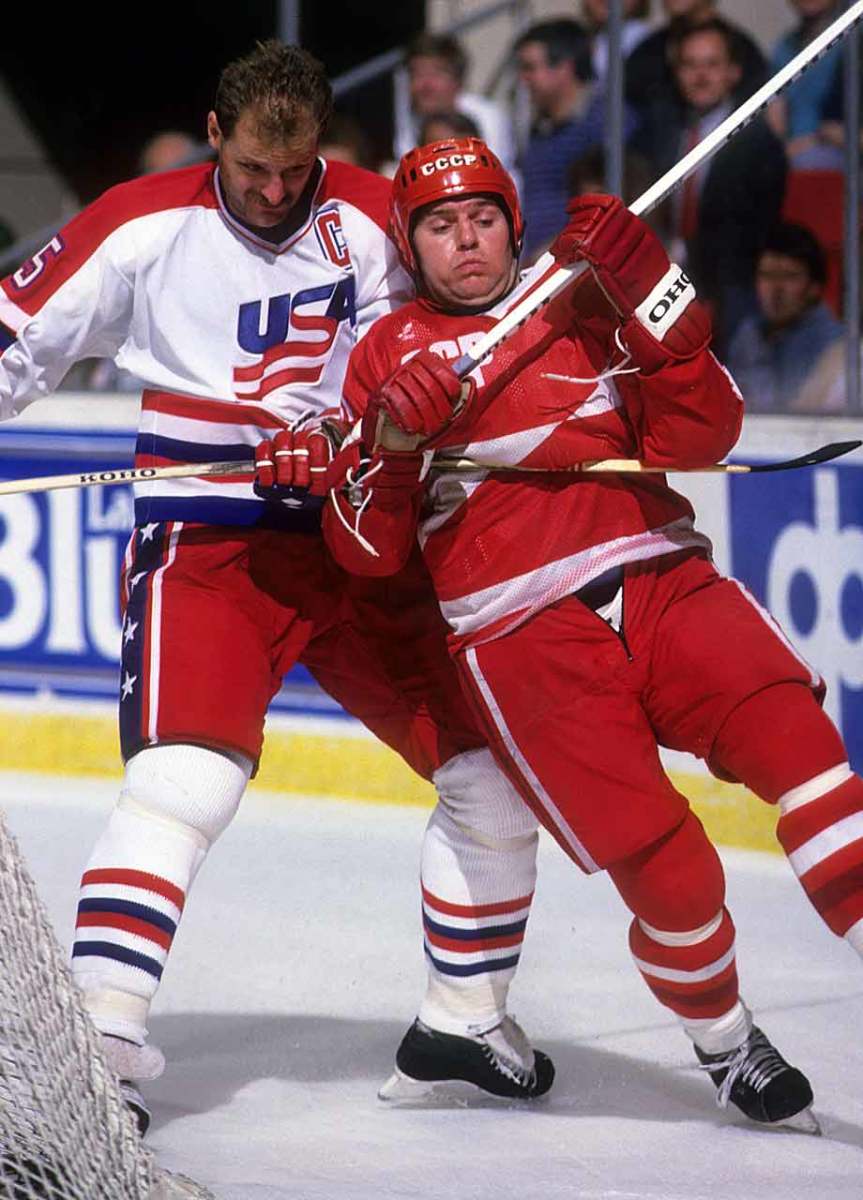
A winger on the famed KLM line with Igor Larionov and Sergei Makarov, the burly Krutov – aka, the Tank -- won two Olympic gold medals and six world titles. He had a heavy shot that was far more menacing than it looked, and that often fooled goaltenders. He scored 288 goals in 438 games in the Soviet League before embarking on an NHL career. He played one season with the Canucks before spending time in both the Swiss and the Swedish leagues. -- Brian Cazeneuve
14. Alexander Ragulin
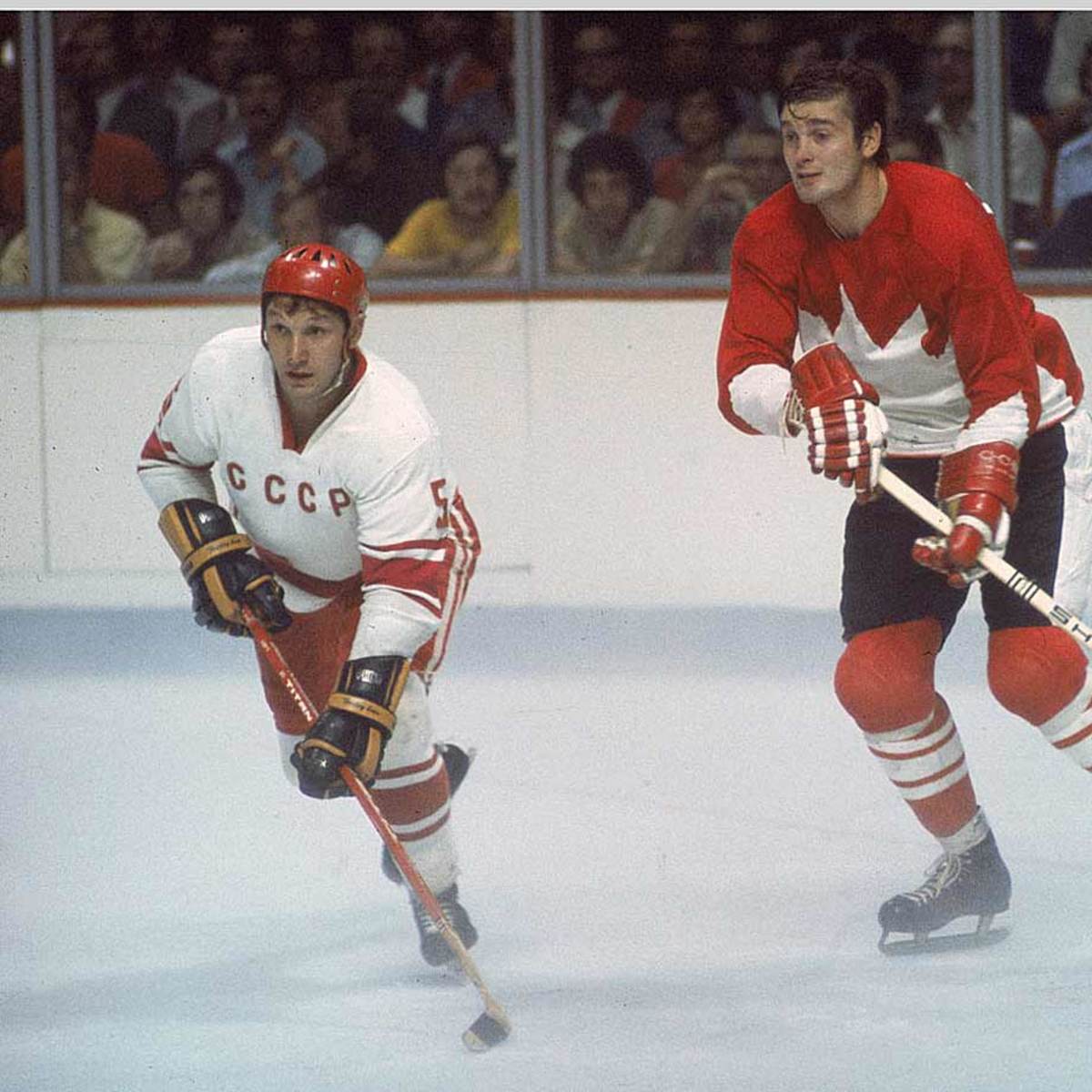
A Olympic gold medalist for the Soviets in 1964, ‘68 and ‘72, Ragulin was a crafty defenseman who was often assigned to play against opponents’ most skilled forwards. During the Summit Series against Canada in ‘72, he marked Phil Esposito. Though never much a scorer, Ragulin was so effective at shutting foes down that he has been compared to Doug Harvey, the Canadiens’ Hall of Fame defenseman. -- Brian Cazeneuve
13. Pavel Datsyuk
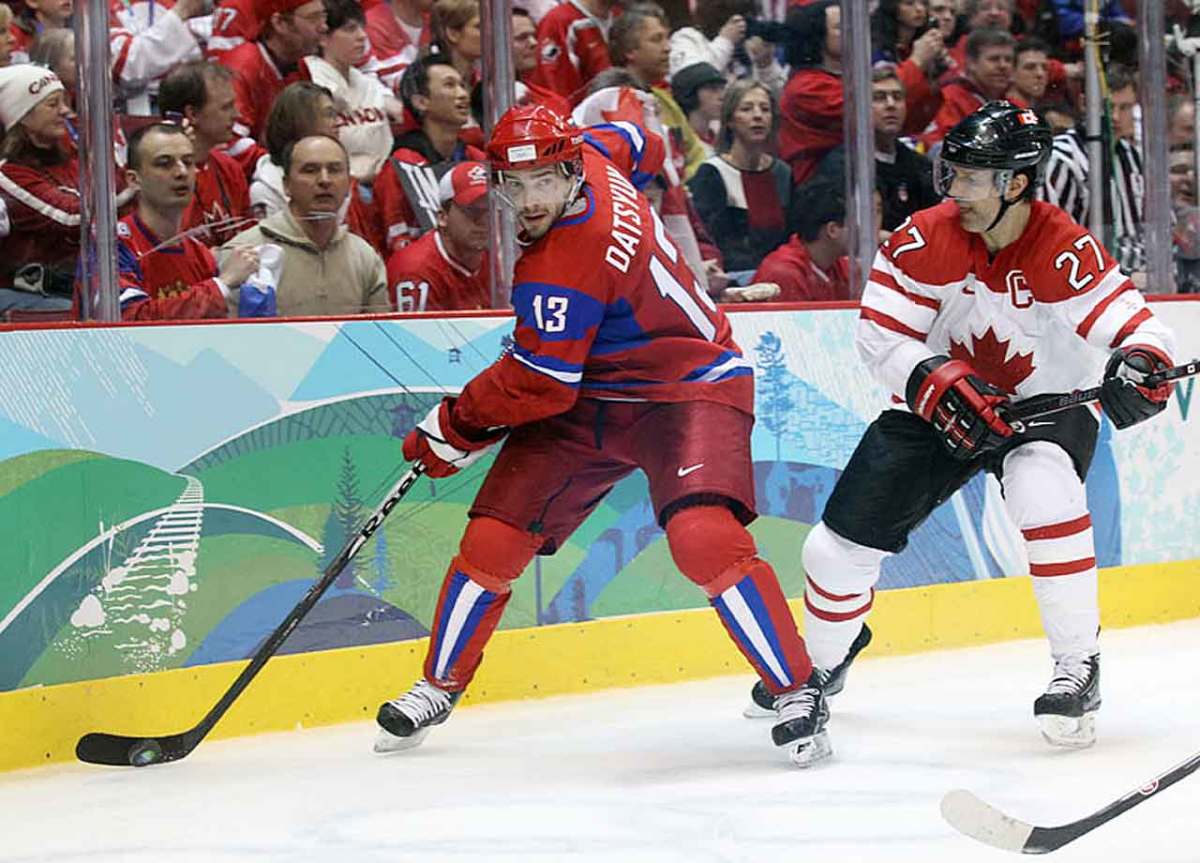
One of the NHL’s smartest and most complete players, Datsyuk has turned defensive hockey into an art form with his ability to swipe pucks off the sticks of unsuspecting opponents. He is a three-time winner of the Selke Trophy as the league’s best defensive forward and a four-time winner of the Lady Byng Trophy as its most gentlemanly player. He is also known as one of the game’s funniest players off the ice. The 35-year-old Datsyuk will serve as team captain for Russia at the Sochi Olympics. -- Brian Cazeneuve
12. Sergei Makarov
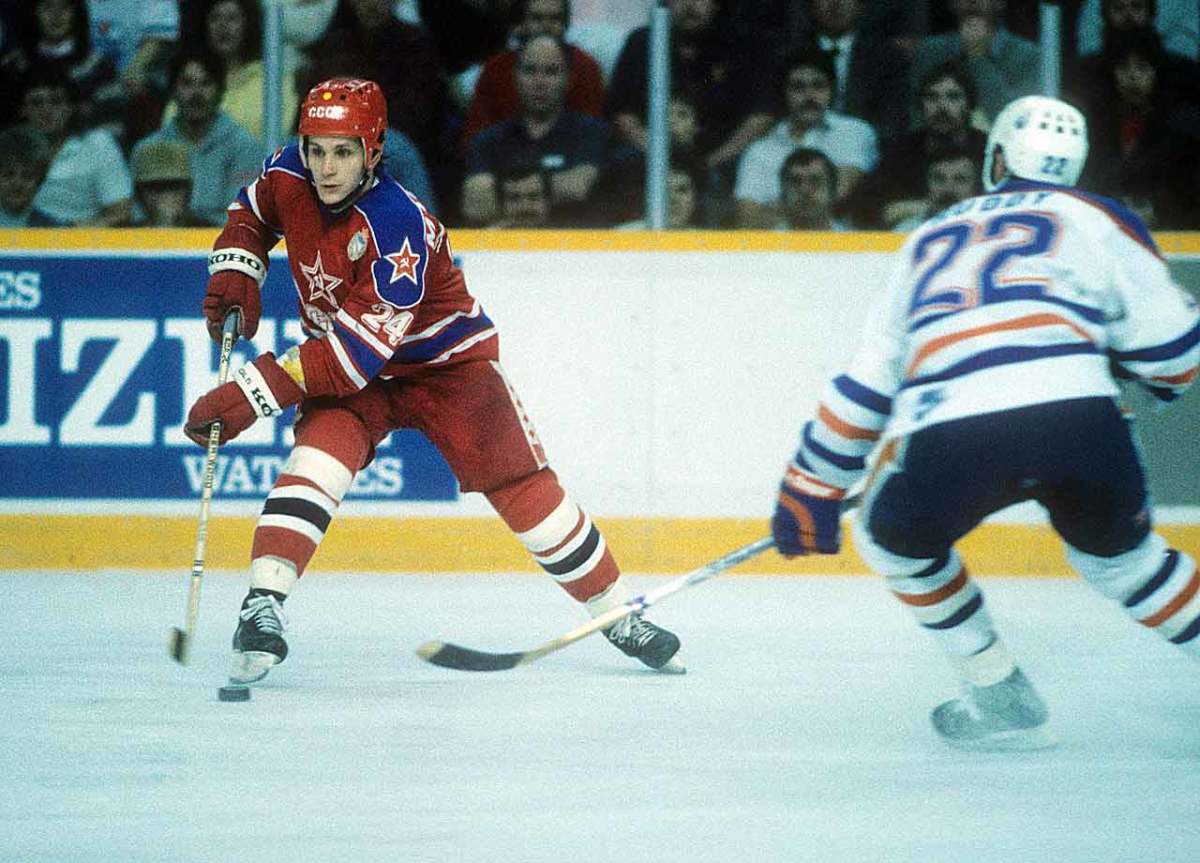
After an outstanding career in his home country -- he was named Soviet MVP three times -- the speedy two-time Olympic gold medalist joined the Flames and was controversially named rookie of the year despite his age, 31, and international resume. His selection led to the so-called Makarov Rule, which designated that eligibility for the Calder Trophy be limited to players 26 and under. Makarov scored 134 NHL goals with Calgary, the Sharks and the Stars. He now works as an agent out of Moscow, mostly for players coming to North America. -- Brian Cazeneuve
11. Igor Larionov
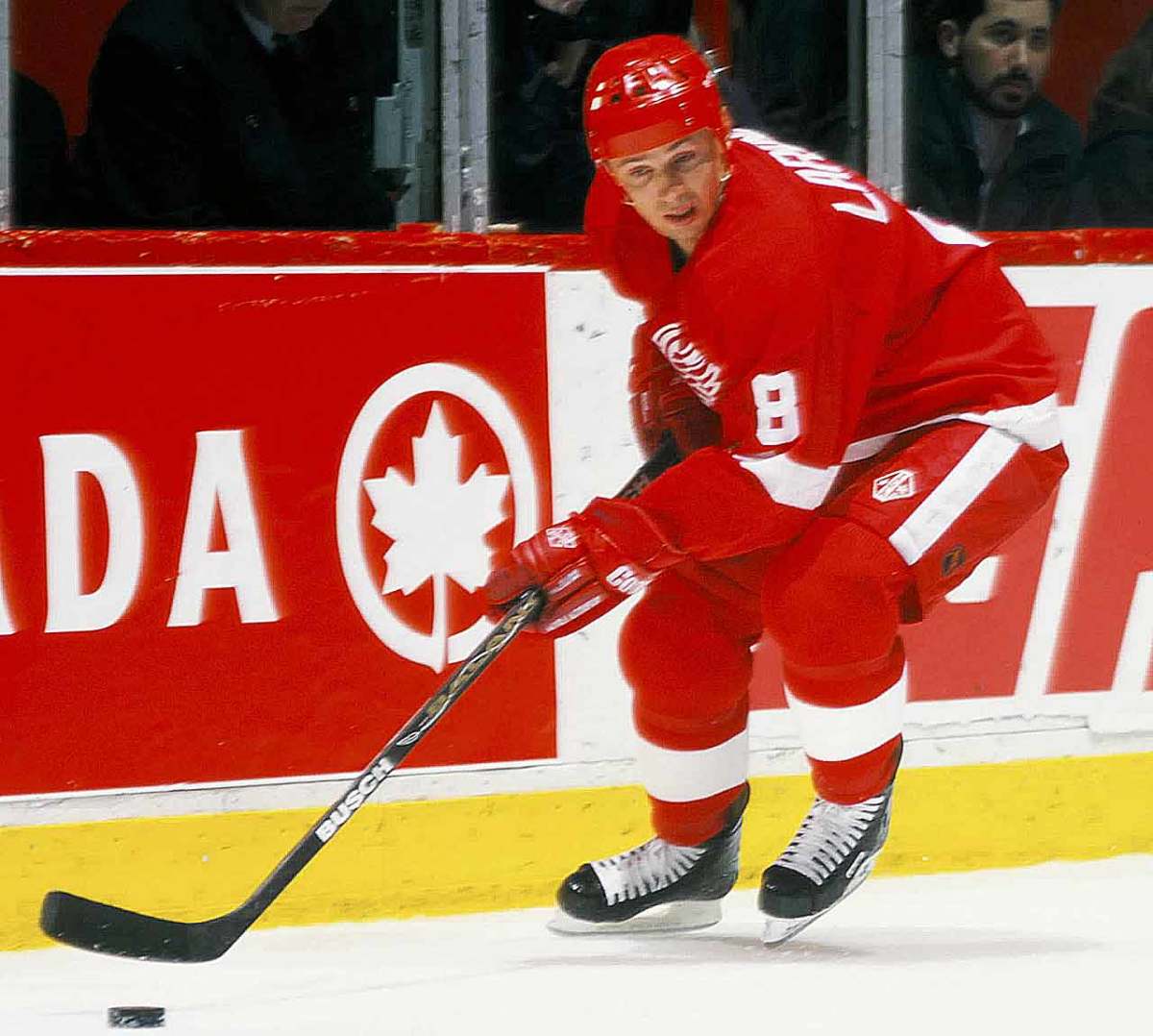
As one of the Red Wings’ Russian Five, the brainy Larionov was highly respected for adapting his game to the NHL better than any former Soviet player. At 5-9, 175 pounds, he made the most of his size, and was a deft passer. He played until he was 43, winning two Olympic gold medals and four world championships. Larionov, who lives in the Detroit area, now works as a player agent and serves on the selection committee for the Hockey Hall of Fame, into which he was inducted in 2008. -- Brian Cazeneuve
10. Alex Ovechkin
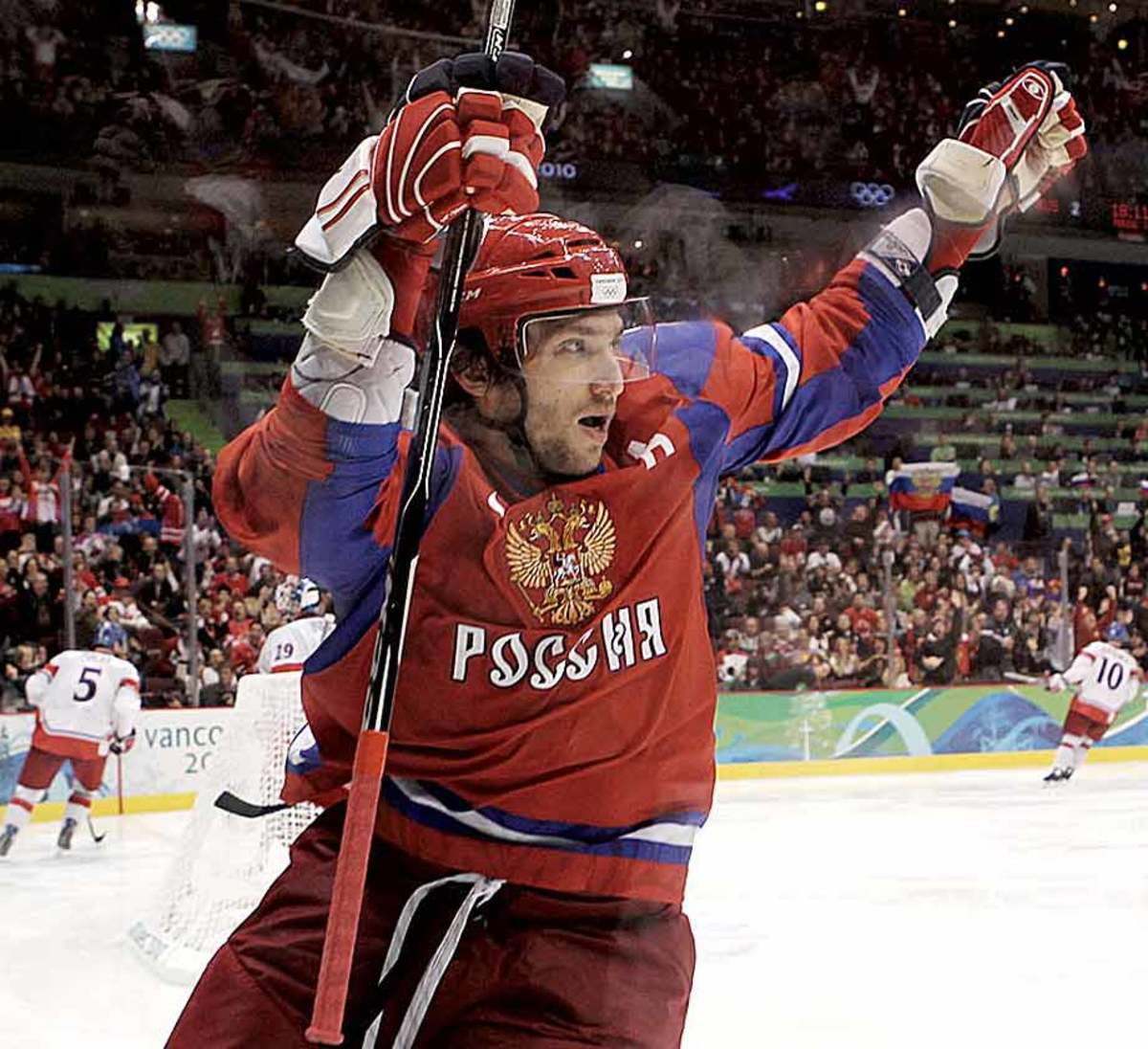
Is there any athlete in any sport from any country under greater pressure to perform than Ovechkin? Russian hockey has been in decline since the breakup of the Soviet Union, but Ovechkin has been so eager for Sochi that even before NHL players were confirmed to play in the Olympics, he said he would leave the Capitals to play in the Games no matter what. The 28-year-old sniper is a three-time Hart-Trophy winner, and a five-time winner of the Kharlamov Trophy as the top Russian player in the world. He has scored an astounding 407 goals in just 649 NHL games. -- Brian Cazeneuve
9. Vladimir Petrov
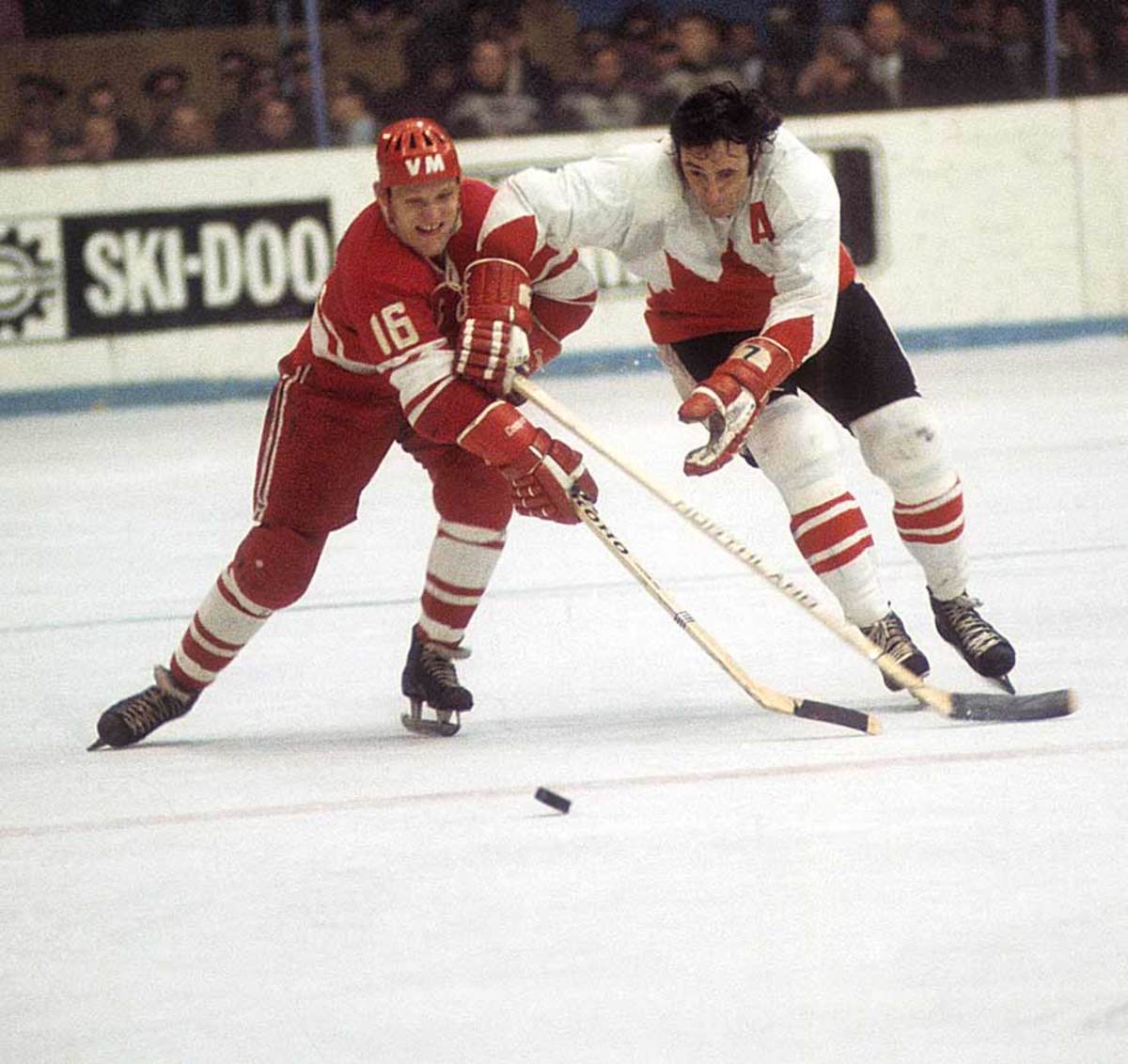
The three-time Olympic medalist was named the player of the year in the Soviet League in both 1972 and ‘73. Four times he led the Soviet League in scoring and four times he led was the leading scorer at the world championships. In all, he amassed 154 points in 102 games at the worlds. On the national team, Petrov played on a line with Boris Mikhailov and Valeri Kharlamov -- one of the most prolific trios in the history of the game. Petrov helped to usher in the post-Soviet era of hockey by serving as the president of the Russian Ice Hockey Federation during the 1990s. -- Brian Cazeneuve
8. Sergei Fedorov
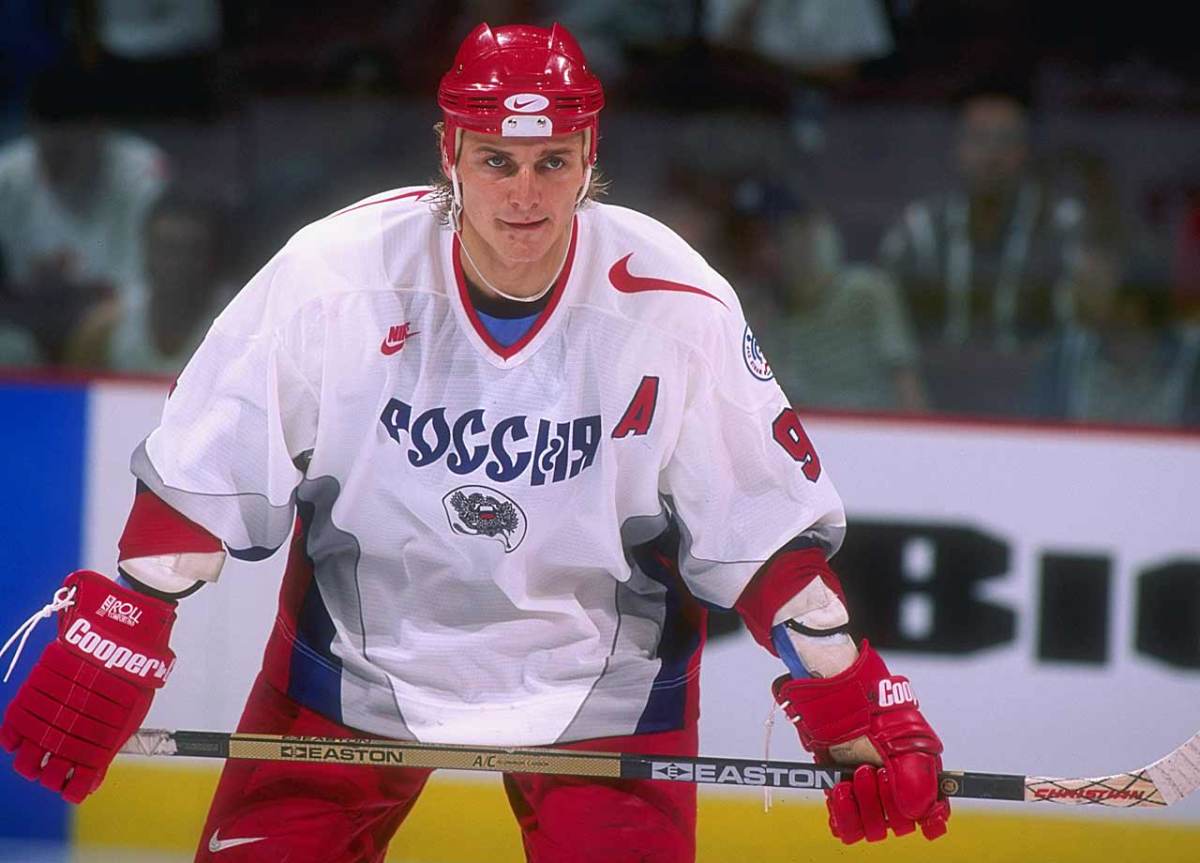
Fedorov was an early bloomer, cracking the Red Army lineup in 1987 as a 17-year old, and defecting to the U.S. during the 1990 Goodwill Games in Seattle. He became a superstar with the Detroit Red Wings, winning the Hart Trophy in ’94 and becoming the first Russian player to record 1,000 career points (he finished his career with 1,179). Fedorov scored 483 career NHL goals, the most of any Russian, and his 27 overtime goals are the most in league history. Now 44, he is GM of the Red Army team in Moscow. -- Brian Cazeneuve
7. Valeri Vasiliev
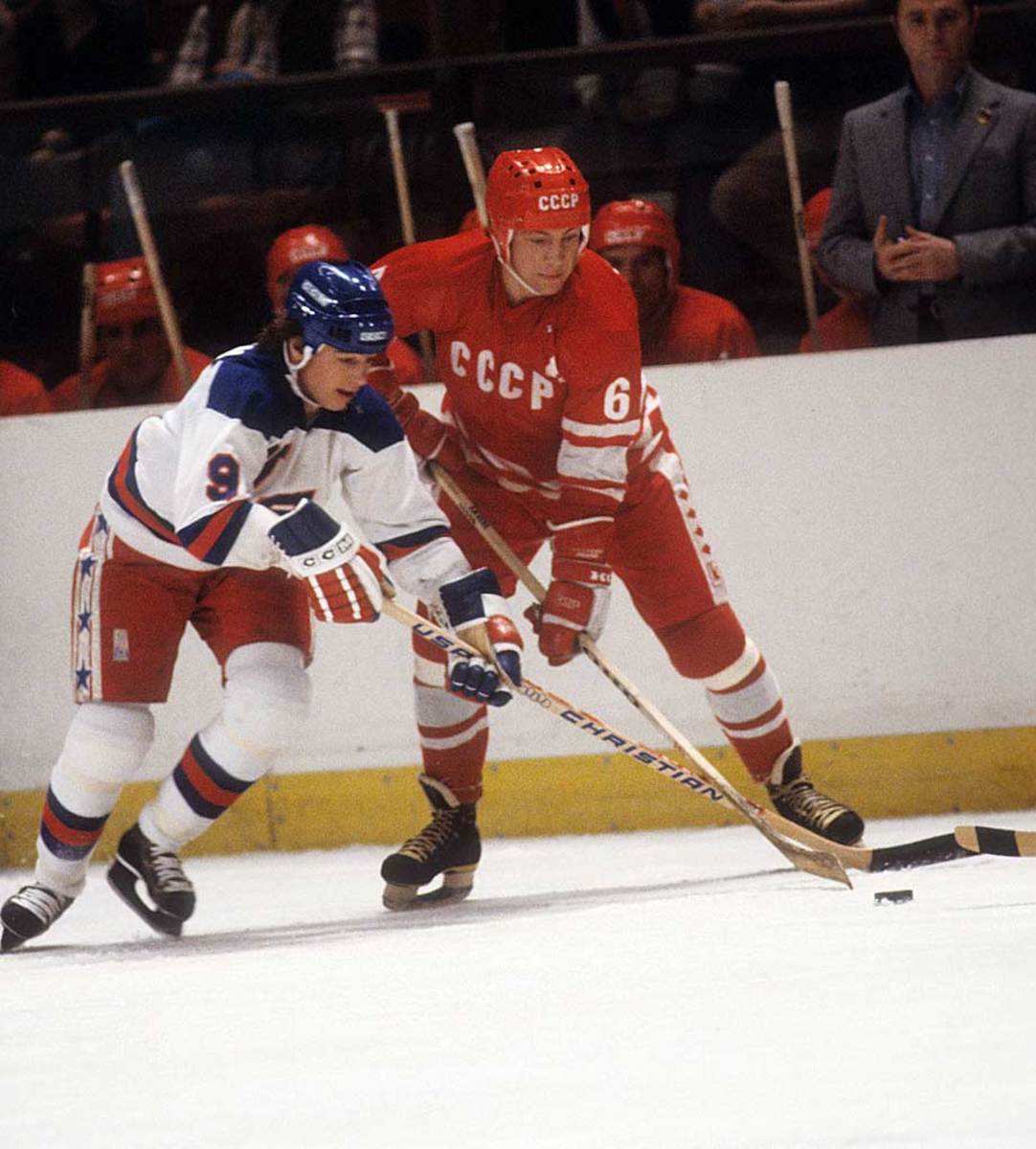
The eight-time Soviet all-star was named best defenseman at the world championships on three separate occasions. Vasiliev won two Olympic gold medals and eight world titles – he won the 1978 world championship not long after he had suffered a heart attack. He was also the captain of the Soviet team that won the Canada Cup in 1981, winning the final game 8-1 over a Canadian team that included Wayne Gretzky, Guy Lafleur and Mike Bossy. Vasiliev passed away from heart failure in 2012. -- Brian Cazeneuve
6. Boris Mikhailov
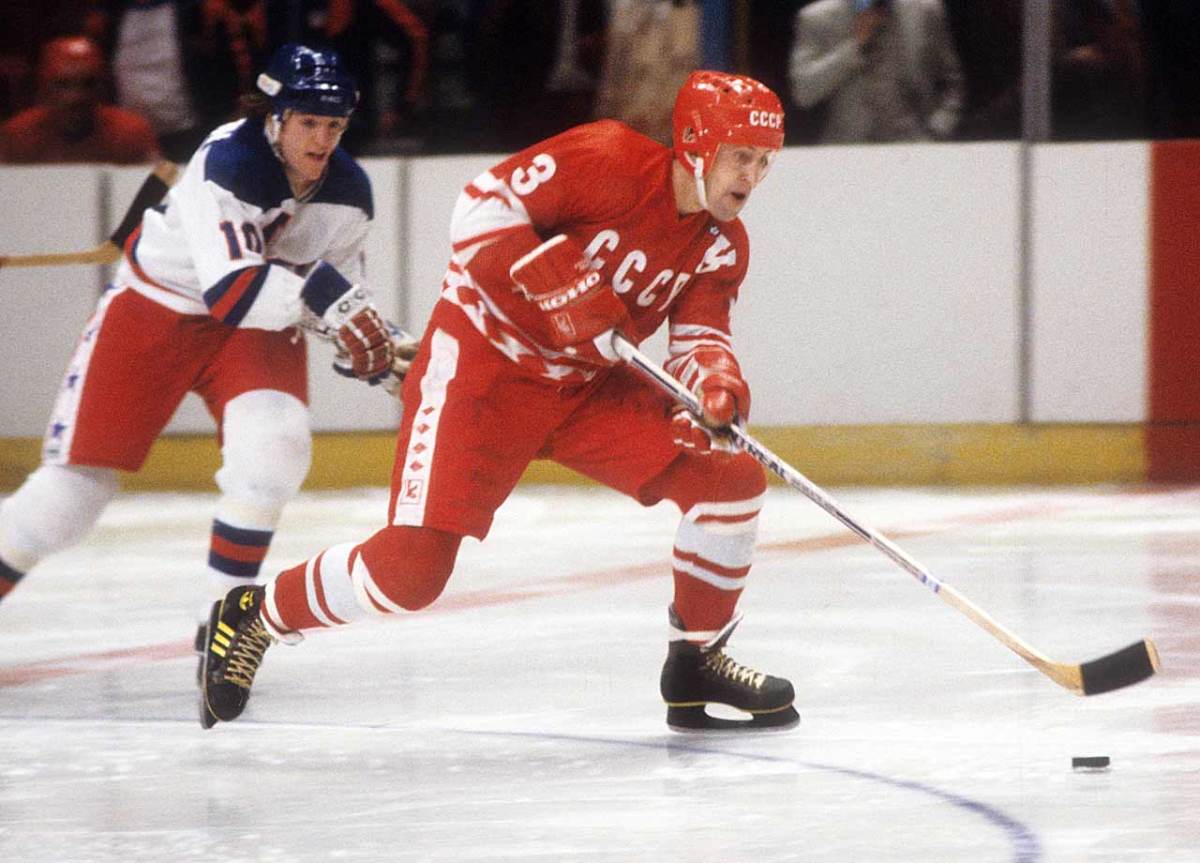
Herb Brooks may have inspired the U.S. in 1980 by sniping that the Soviet captain looked like Stan Laurel, but Mikhailov was no joke. He put up amazing numbers (427 goals, 224 assists) in 572 games of Soviet League play. He was a great skater and was named the Soviet League’s MVP in 1977 and ‘78. Mikhailov was captain of the national team for nine years, and won two of Olympic gold medals, but he also won a handful of imposing non-hockey awards -- including the Order of Lenin, the Red Banner of Labor and the Badge of Honor – that spoke to the respect he had at home. -- Brian Cazeneuve
5. Viacheslav Fetisov
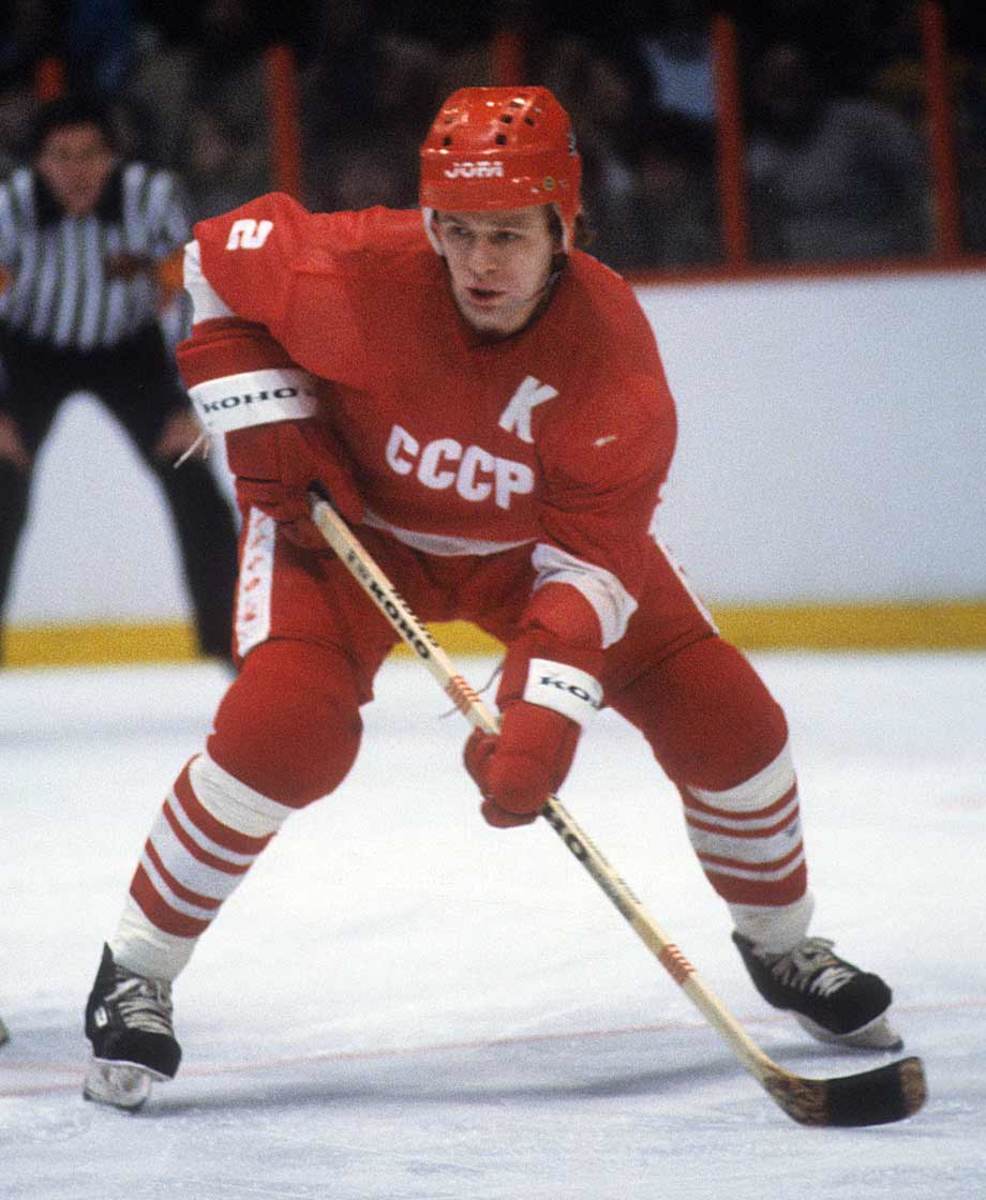
In his prime, he was considered the greatest defenseman in international hockey. Fetisov starred for the Red Army team for 13 seasons and was twice named Soviet hockey’s player of the year. After winning his second Olympic gold medal in 1988, he joined the New Jersey Devils and later won two Stanley Cups as a player with the Detroit Red Wings (he won another as a Devils assistant in 2000). He played for ten years in the NHL, and saw action in 116 postseason games. -- Brian Cazeneuve
4. Vsevolod Bobrov
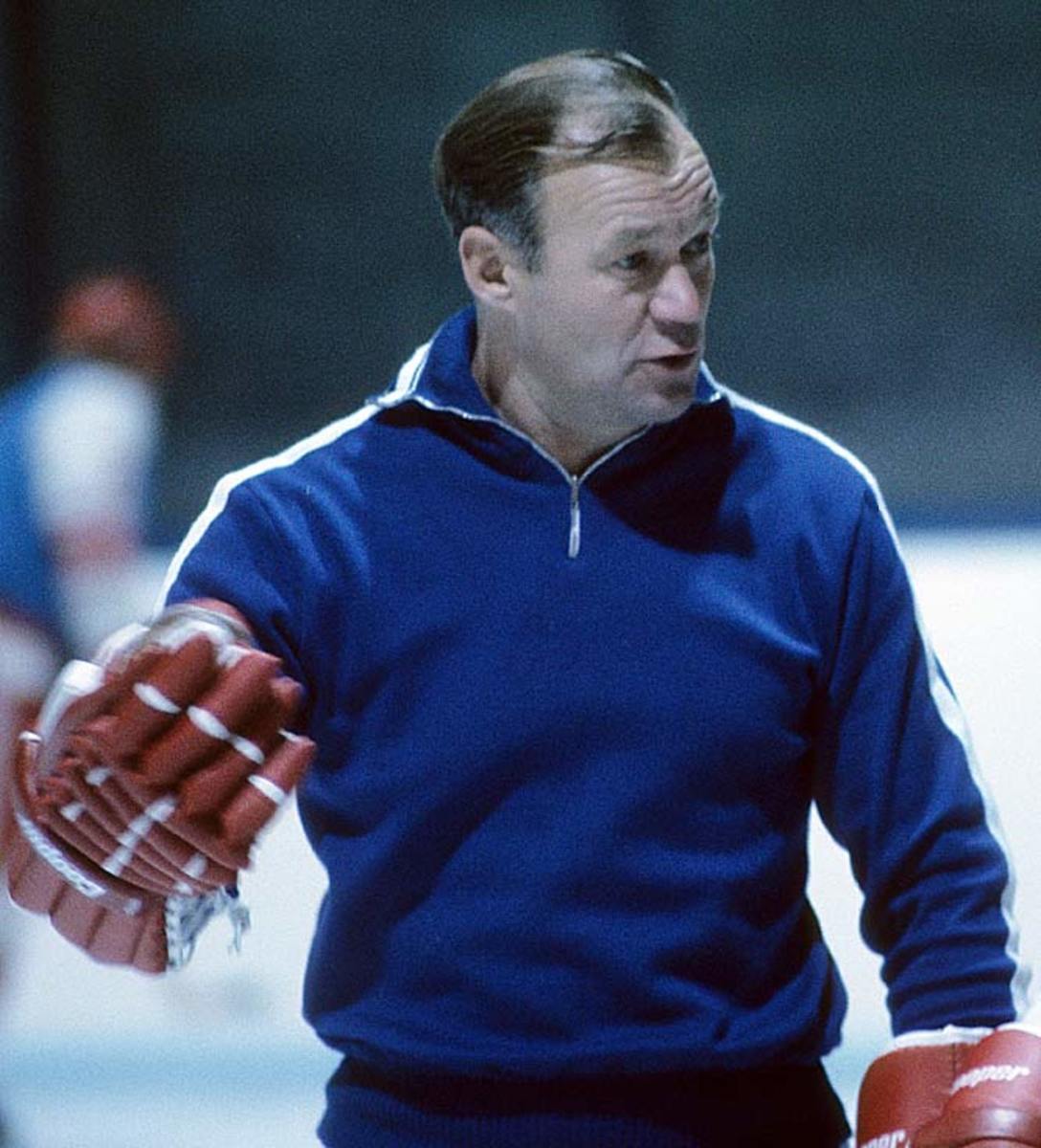
One of the greatest all-around Soviet athletes in history, Bobrov won three Soviet championships and was the national team captain . . . in soccer. As a hockey player, he had a shot that rivaled Bobby Hull’s; Bobrov scored 254 goals in just 130 Soviet League games. When the U.S.S.R. won hockey gold at the 1956 Olympics in Cortina, he became one of the few Soviet athletes to have participated in both the Winter and Summer Games. He went on to coach the Soviet teams to world hockey titles in 1974 and ‘75. -- Brian Cazeneuve
3. Anatoli Firsov
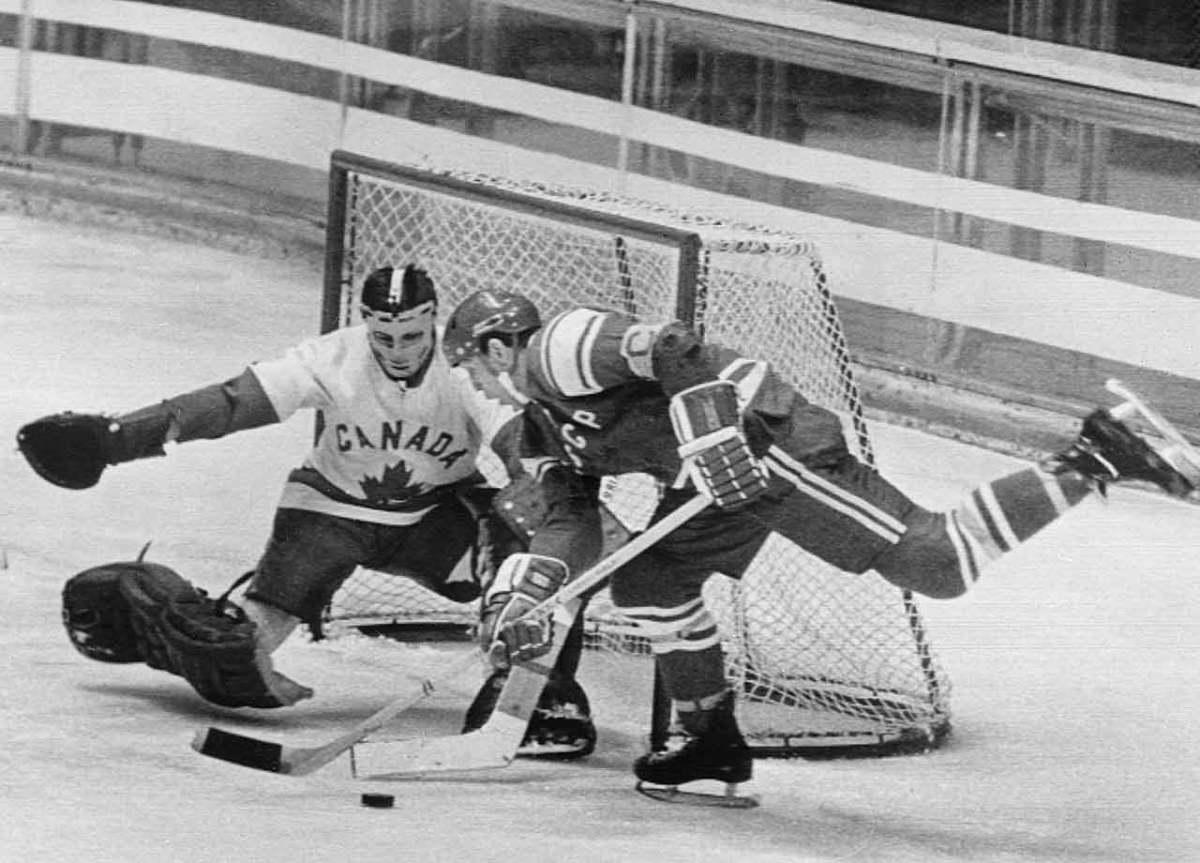
The fanatical forward won three Soviet MVPs and three Olympic gold medals, but he was best known for his absurdly punishing workouts -- he weighted his sticks and his pads, he performed skating drills with skips and jumps to perfect his balance and he insisted that the largest defensemen on his own team pound his 5-foot-9 frame regularly in practice to prepare him for the rigor of games. Firsov was left off the roster of the national team for the 1972 Summit Series in what some said was a political slap at his outspoken coach Anatoli Tarasov. -- Brian Cazeneuve
2. Valeri Kharlamov
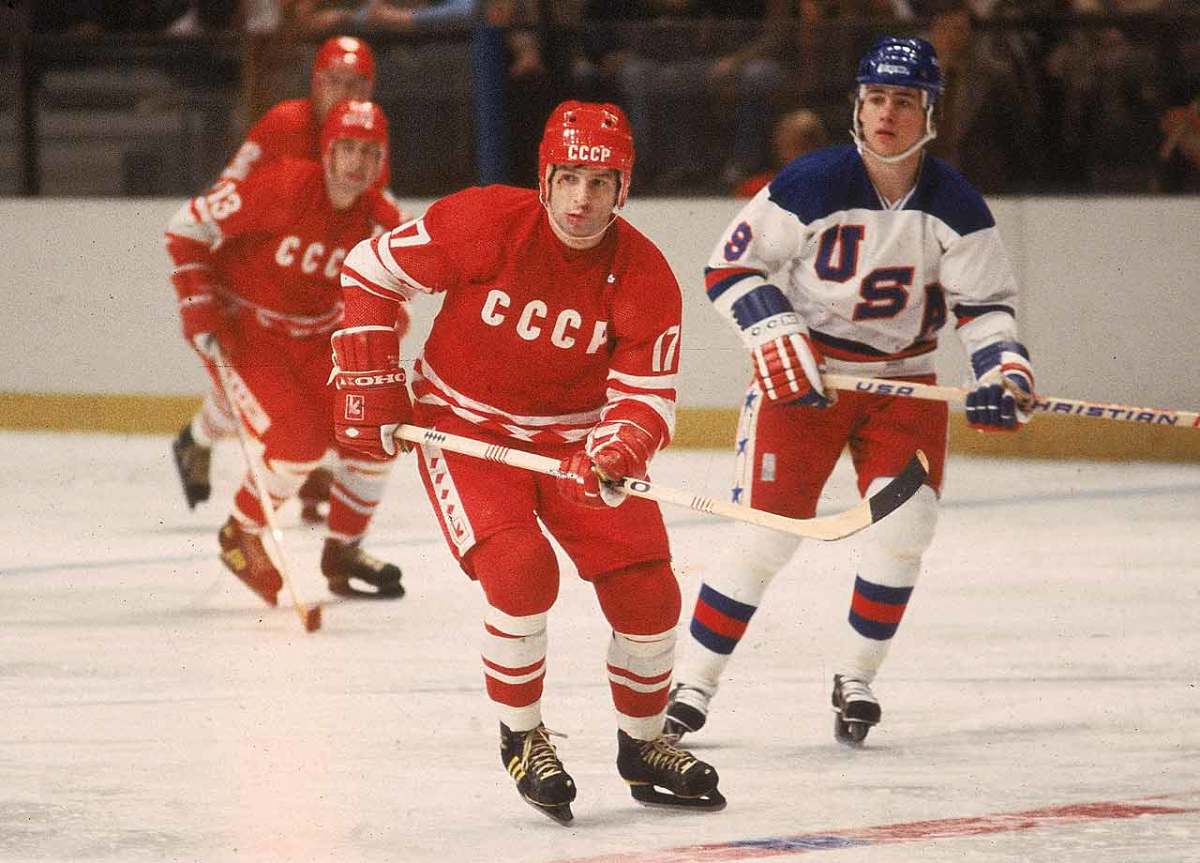
In the opener of the 1972 Summit Series, Team Canada was blindsided by the magical skills of Kharlamov, who scored two goals in the Soviet Union’s 7-3 victory and was named the game’s No. 1 star. The Canadians feared him so badly that Flyers center Bobby Clarke – captain of the Broad Street Bullies -- broke Kharlamov’s ankle in Game 6 with a deliberate slash that changed the momentum of the series. Kharlamov played on eight world championship teams before he lost his life in a car accident at age 33. Today the world’s best Russian player receives the Kharlamov Cup. -- Brian Cazeneuve
1. Vladislav Tretiak
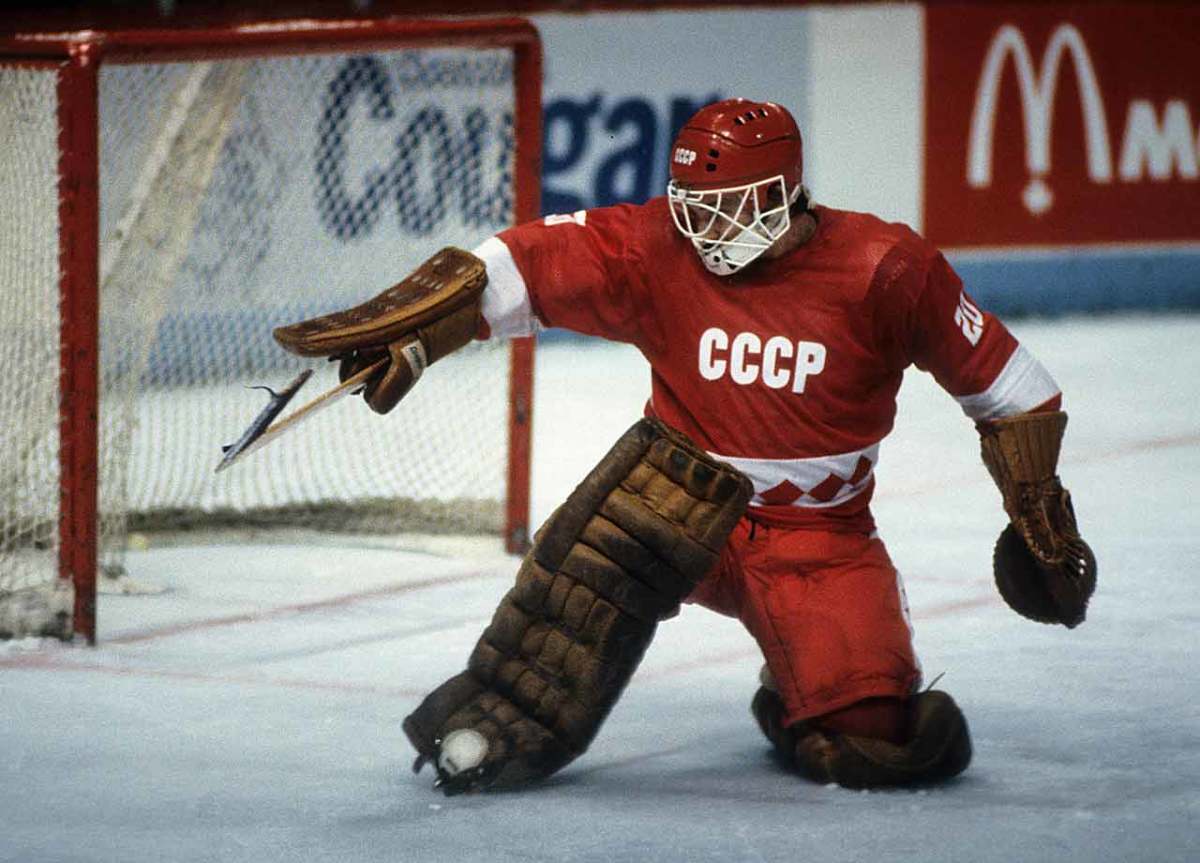
Who knows if Tretiak would be considered the greatest goalie of all-time had he played in the NHL, but surely he belongs in the discussion. He won four Olympic medals – three golds and a silver -- ten world championships and, memorably, received a four-minute standing ovation from the crowd at the Montreal Forum after shutting out the Canadiens 5-0 in an exhibition game on Dec. 31, 1982. Montreal drafted him six months later, hoping that he’d one day be released to play in the NHL. It was not to be. -- Brian Cazeneuve
